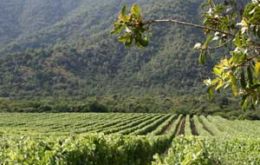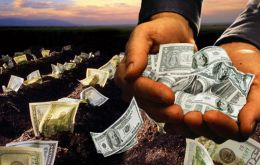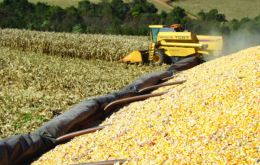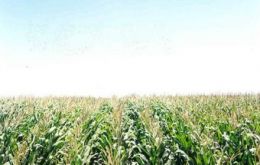MercoPress. South Atlantic News Agency
Agriculture
-
Thursday, August 5th 2010 - 16:11 UTC
Japan rice stockpiles to reach the highest in eight years in 2011

Japan’s food rice stockpiles may reach the highest level in eight years at the end of June 2011, leading to a price drop and planting curbs by growers next year. Private and government inventories are forecast to climb 2.5% to 3.24 million metric tons from 3.16 million tons a year earlier, the Ministry of Agriculture, Forestry and Fisheries said in a report Wednesday.
-
Thursday, August 5th 2010 - 01:32 UTC
Mining and agriculture disputing scarce water resources in northern Chile

With the mining industry increasing its presence in northern Chile, problems over resources are arising between the mining and agricultural industries, especially over water.
-
Tuesday, August 3rd 2010 - 15:04 UTC
Wheat prices at 22 month high; fears about drought and fires in Russia

International wheat prices hit a 22-month high Monday after a severe drought and ensuing wildfires in Russia devastated crops. Chicago Board of Trade (CBOT) wheat for September delivery broke through the $7-a-bushel level in US trade for the first time since September 2008 but have since falling back.
-
Tuesday, August 3rd 2010 - 06:02 UTC
Chilean wine industry and pork plant clash over land planning and use

Winemakers in Chile’s Casablanca Valley have been fighting pork-producing behemoth Expo Pork Meat for the past two weeks, as the company looks to construct a pork-processing plant in the region.
-
Saturday, July 31st 2010 - 08:01 UTC
Falkland Islands: Tussac planted in place of mines

OVER the course of two weekends Falklands Conservation staff and volunteers led by Dr Rebecca Upson, Falklands Conservation’s Plant and Habitats Officer, have carried out restoration work on two sites recently cleared of mines.
-
Saturday, July 10th 2010 - 07:18 UTC
Argentine agro-exports help boost international reserves to over 50 billion USD

Argentina’s international reserves once again exceeded the 50 billion US dollars mark, boosted by an intervention to the Central Bank by the market in a record purchase of 262 million USD.
-
Thursday, July 8th 2010 - 07:59 UTC
EU court ruling favours Argentina in dispute with Monsanto over soy-seed patent

United States Monsanto Co., the world’s biggest seed company, can’t use a European patent on its Roundup Ready soybeans to block Argentinean soy meal imports, the European Union’s highest court said Wednesday.
-
Saturday, June 19th 2010 - 02:11 UTC
BRIC emerging economies will enjoy agriculture boom, says UN-OECD report

The emerging economies of Brazil, India, China and Russia (BRIC) will enjoy an agricultural boom over the next decade as production stalls in Western Europe, a report says.
-
Friday, June 18th 2010 - 00:02 UTC
Record crop of corn in Argentina: 22.5 million tons; yield 8.5 tons per hectare

Argentina’s 2009/2010 crop of corn is estimated to reach 22.5 million tons of corn, based on better than expected yields, according to Buenos Aires Grains Chamber.
-
Monday, June 14th 2010 - 04:17 UTC
Cuba for the first time names agronomist as Minister of Agriculture

Cuba has removed General Ulises Rosales Toro as agricultural minister and made him a technical adviser for the island's sugar, agricultural and food production industries. A government statement Saturday characterized the move as a promotion for Rosales. He remains a member of the powerful Politburo.